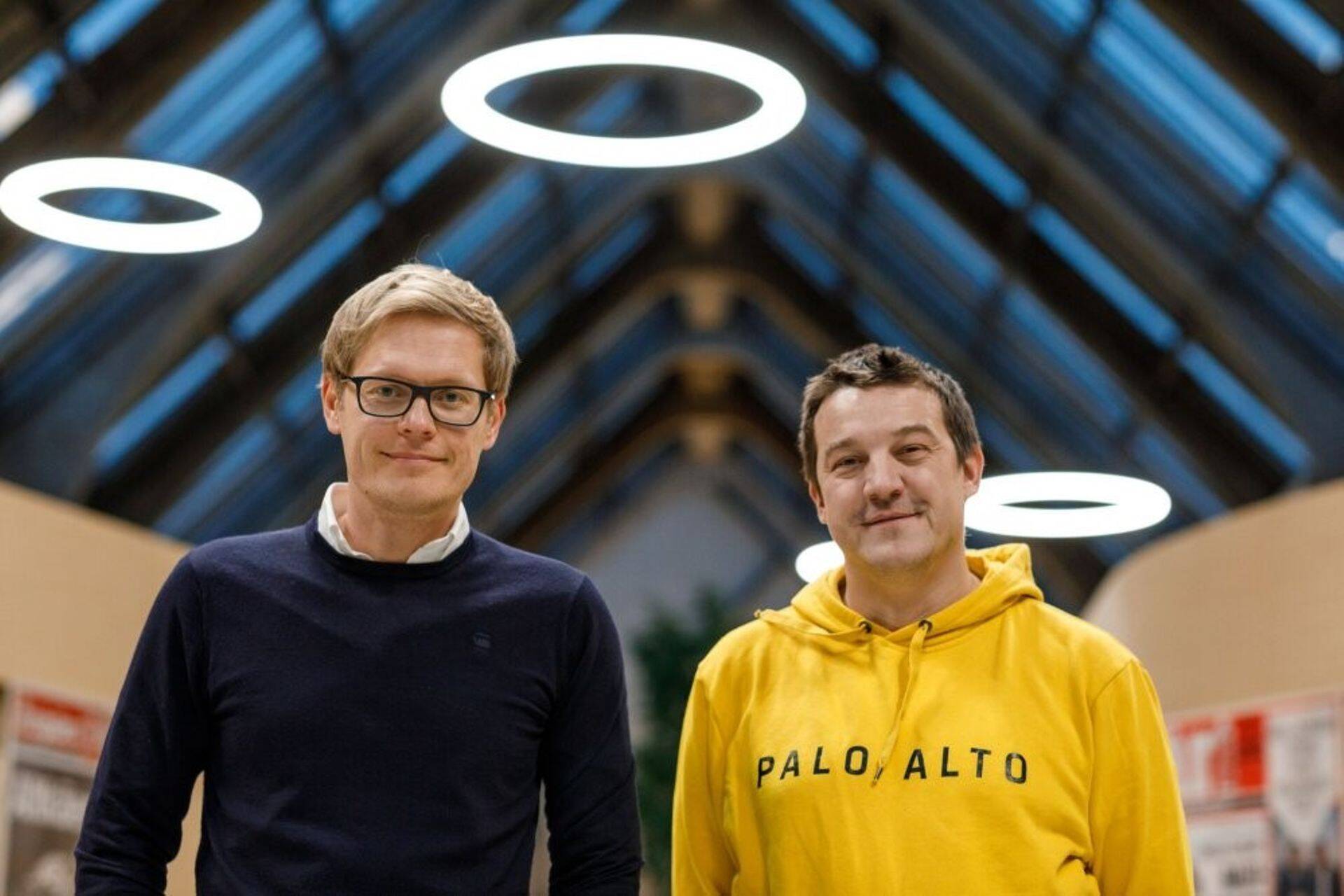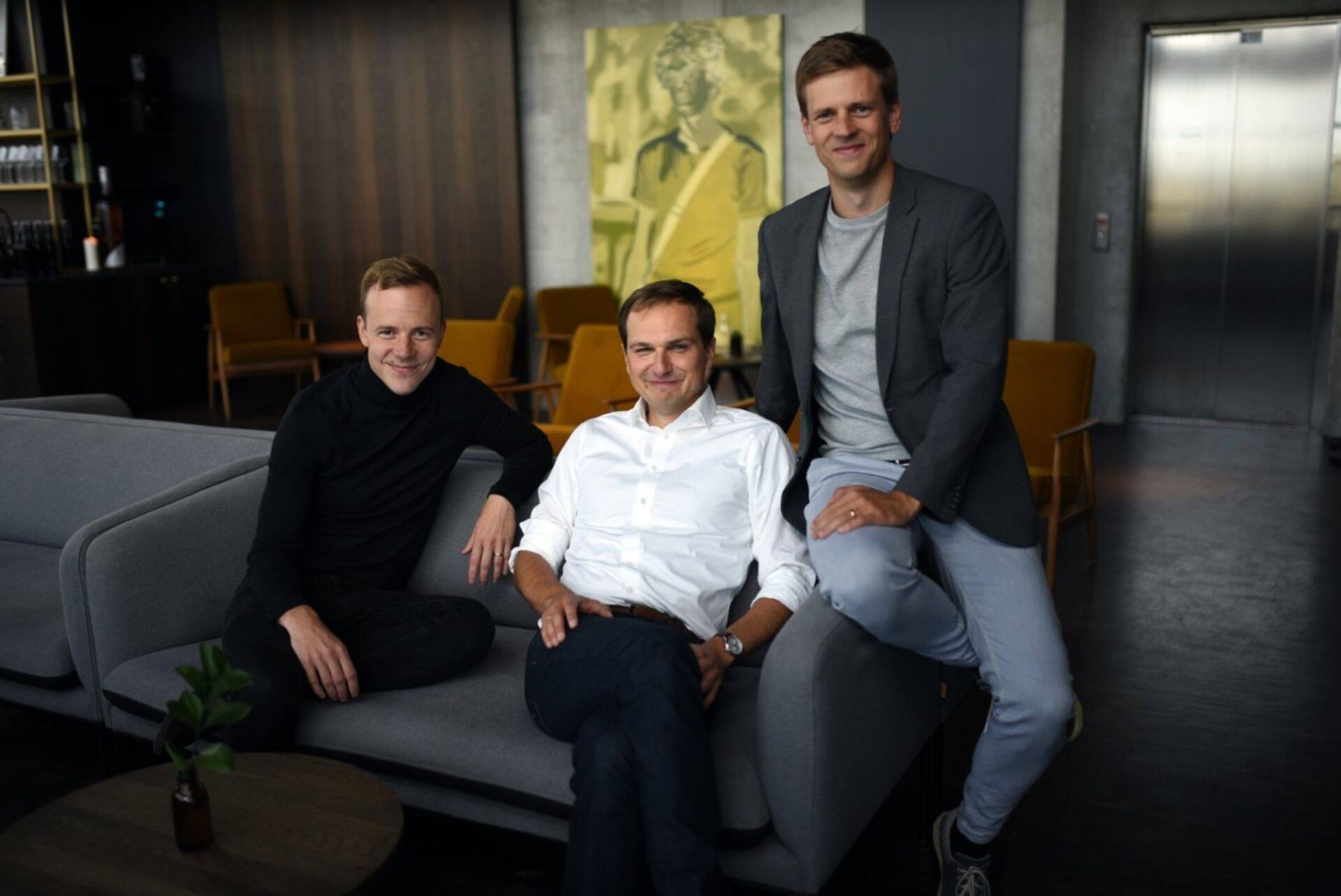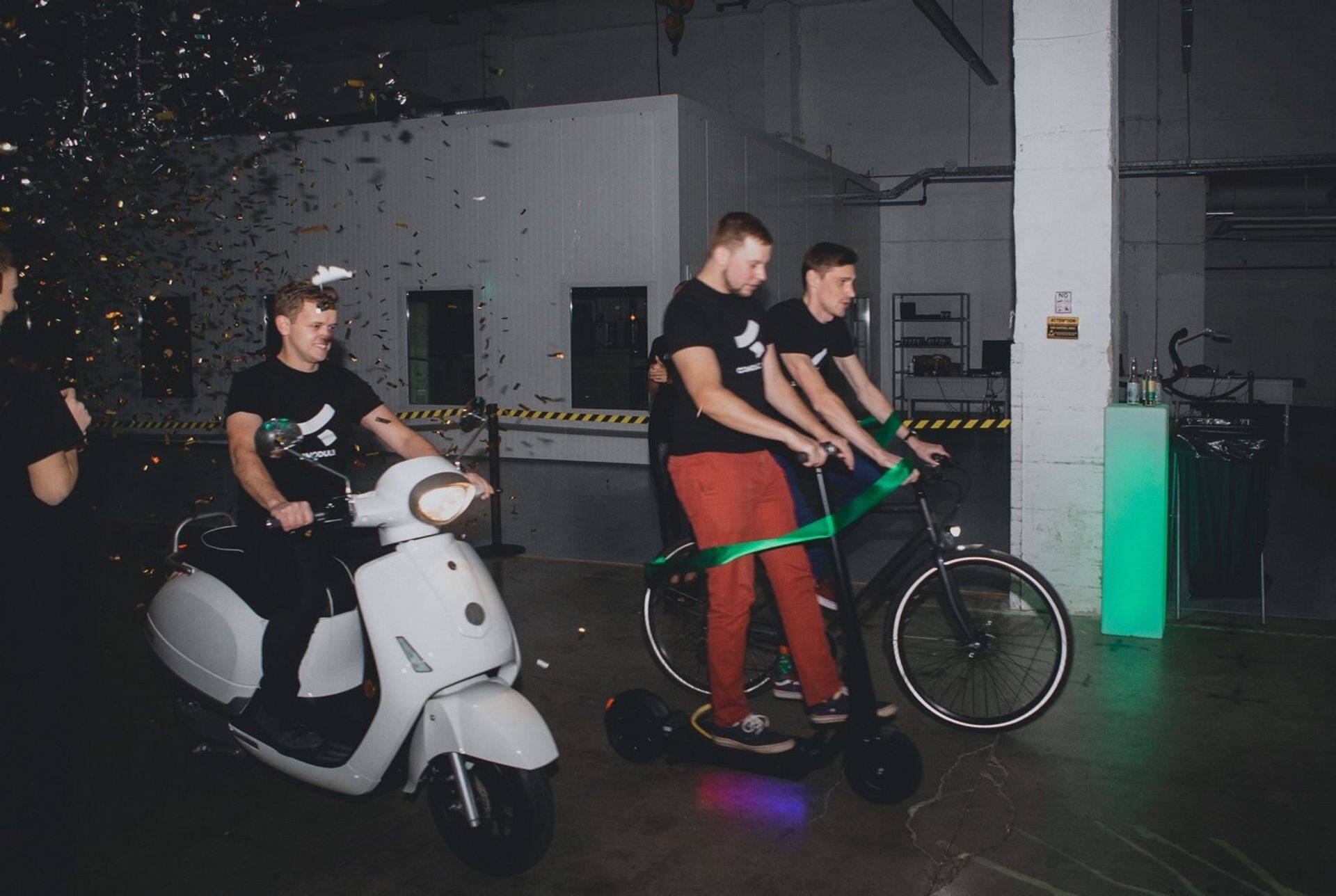Tähelepanu! Artikkel on enam kui 5 aastat vana ning kuulub väljaande digitaalsesse arhiivi. Väljaanne ei uuenda ega kaasajasta arhiveeritud sisu, mistõttu võib olla vajalik kaasaegsete allikatega tutvumine
Year 2019: Startups gained strength and opened factories
Year 2019 produced many promising newcomers. Investments were more evenly spread, but TransferWise still attracted a large investment and is now valued at $3.5 billion.
Employees and current investors of TransferWise sold $292 million worth of shares, bringing in millions not only to the company’s founders, but also to more than ten of its early employees, among them some Estonians.
2019 did not reach the level of the previous year, due to lack of massive deals like in 2018, when Bolt reached unicorn status, raising $175 million under Daimler's leadership and pushing the amount of venture capital invested in all Estonian startups to more than $330 million. In 2019, Estonian startups raised €294.5 million, including a record high 25 million from Estonia. The number of investment deals at 67 was another record for Estonian startups. At the same time, the average size of deals fell slightly compared to earlier years to less than € 4.5 million.
According to Sten Tamkivi, President of Estonian Startup Leaders Club, next to the investment deals some other figures are even more interesting. "For quite a few years now we can say that Estonian startups have never done better. The fact that there are currently 900-950 tech startups in Estonia and around 200 of them established by foreign founders shows how international our startup community has become. More than 6,000 people are already employed in the startup sector,” Tamkivi said. He added that the number of people working in startups has been climbing by 30% for the last five to six years.
The sweetest money is the money you earn
Apart from the investments, another important benchmark for Tamkivi is the income generated by startups. "The sweetest money does not come from the investor, but from the customer. It confirms above all that the company is doing something necessary.” According to him, Estonian startups gain €650-700 million in export revenue per year.
It is therefore very logical, said Tamkivi, that for the third consecutive year investors are adding approximately €300 million to our startup sector. "If you have a strong growth sector that shows no sign of slowdown, and the number of employees and companies keeps growing, it's very attractive to investors."
Hetkel kuum
Looking at the investment figures, Tamkivi said that the fluctuations are normal. "When some years one TransferWise or Bolt deal accounts for the lion's share of a few hundred million euros of total investment, then I think that this year's increase in the number of deals and decline in the average size of the deal shows that the base is widening: new teams are entering the market and starting out by raising smaller capital rounds. But at the same time, TransferWise made a large deal."
Riivo Anton, co-founder of venture capital fund United Angels, also admitted that raising money is not the only indicator describing the sector. "I have noticed that there are many foreigners who have come here to set up a company and there is at least one Estonian startup in our fund founded fully by foreign founders. They have found their way to Estonia.”
Successful startups grow next successful startups
Another important sign of success is second time founders. “Already for several years we see founders who have previously exited a startup or have worked in a successful company and have now decided to found their own company. I regard these aspects at least as important as the excellent level of financing in the region,” Anton said.
In Tamkivi’s words it can be seen as a global trend. Strong innovation environments occur around people who have grown out of the success of a company. Those founders have experience in building something big. They have the contact network as well as access to capital. “Some examples include the high concentration of mobile technology gaming companies that sprang out after Nokia in Finland and electronics companies after Ericsson in Sweden as well as industrial electronics companies around Siemens in Germany. In Estonia the first wave of successful startups was probably created around Skype,” said Tamkivi.
Tamkivi reminded that in 2005 after Skype was sold to eBay, Estonia got its first venture capital flowing in. “It’s those financing indicators we follow from the year 2006, which were not there before. When I look at young teams starting out today, I see more and more people with Pipedrive and TransferWise backgrounds, which probably refers to another wave of startup generation.”
For example, this year we saw an anti-money laundering startup Salv being founded by people from TransferWise and Skype. Another startup developing an artificial intelligence tool for commercial negotiations Pactum was founded this year by the former Managing Director of Estonian e-residency program Kaspar Korjus, the co-founder of VitalFields Martin Rand and Kristjan Korju from Starship Technologies. There are many other examples, like the sales marketing automation tool Outfunnel and Klaus – the conversation review and QA platform for customer support teams – both of whom evolved from Pipedrive.
Anton said that the motivation for may new founders is the opportunity to solve exciting problems rather than running big departments in a company. "As technology companies get bigger and a bit more corporate then a certain segment of people starts to look for a new challenge."
Trust in the teams of Salv and Pactum was clearly demonstrated by the seed investment rounds where Pactum raised a million from Estonian investors and Salv received a total investment of € 1.8 million, which is extraordinarily high for a seed round.
"Looking at the startup sector from outside, one big contrast with the traditional economy can be pointed out, which is often the fear of failure," he said. "Taking a large loan from the bank to open a manufacturing company, then strategic plans rarely include the potential failure. When you start building a technology company, you take a big risk. As an investor with a portfolio of such companies, I have considered that some will succeed while others will not. You root for anyone who tries, because already in that first step, courage has so much value and you don’t feel that stressed about the possibility that some may fail. If you don't succeed, you try again and do something else," he said.
Factories of startups produce real things
For Riivo Anton, one of the exciting areas of rapid growth is AI and especially AI based products.
However, real products mean that more and more startup companies will have factories in Estonia. One exciting company is Kingdom Technologies from United Angels portfolio, which develops a robot mower for large lawns. Starship is already well-known in that field and also Comodule who connects bikes and scooters to internet and recently opened its factory.
According to Tamkivi, hardware and factories could reduce the public misconception that startups don’t produce anything real. "This is a silly and artificial confrontation. Comodule opened a factory, Digital Sputnik opened its LED lamp factory and Ampler opened a new electric bicycle factory. Name three other factories opened in Estonia, all of which make cool globally marketable products!" said Tamkivi.
"Cleveron certainly expanded its factory," added Anton. "Software enables a lot of new developments also in the hardware segment, and it's great to see that this trend is relevant in Estonia as well."
Best startups of 2019 awarded
Newcomer of the Year 2019: Pactum. Other co-founders of Pactum are Martin Rand, the co-founder of VitalFields, and Kristjan Korjus, former head of AI at Starship Technologies. Pactum’s AI negotiates with people to find the best deal for both parties.
Self-sufficient Startup of the Year 2019: ExtendLaw. According to the executives of startups, the producer of software that simplifies the day-to-day business of lawyers stands out by a viable business model without raising external capital.
Contributor of the Year 2019: Riina Einberg. As a senior executive, she has made a strong direct impact on tech success stories like Skype, ZeroTurnaround, Guardtime, Monese and Bolt, and she always finds time to share her experience with new startups.
Deed of the Year 2019: Rain Rannu movie "Chasing Unicorns". According to voters, this new Estonian movie has given tens of thousands of people the truthful and colorful impression of what it is like to launch a tech startup.
Result of the Year 2019: TransferWise sale of secondary shares. After raising €260 million in May, TransferWise was valued at $3.5 billion and allowed its early employees to sell some of their shares to new investors. "This is a smart way to enable economic security for around 100 people in Estonia without selling the company or going public. These people in return will contribute their time and money to creating new growth companies and to the development of the startup community," as explained by startup managers.
Startup of the Year 2019: Bolt. Bolt, having won the same award last year, when operating under the name Taxify, still remains the most valuable privately-owned Estonian company in the world. Bolt mediates rides in 35 countries for more than a billion euros a year. Bolt employs 1,400 people, 400 of whom are placed in Estonia and offers flexible earning opportunities to millions of drivers worldwide. In 2019, Bolt accelerated the expansion of its e-scooter business, opened a restaurant food delivery service and launched carbon-neutral rides in Europe to contribute to the mitigation of climate change and promote a greener lifestyle.
foundME is inviting you on board of a weekly newsletter that will bring you the news and opinion stories from the Estonian startup scene. - Subscribe to foundME newsletter HERE!
Seotud lood
Cybernetica vanemteadur Liina Kamm ja SoftComply tegevjuht Marion Lepmets avavad, millest põnevast räägitakse parasjagu kõige rohkem küberturbe ja tehisintellekti valdkonnas. Idufirmadel on suurte tegijate kõrval mitu trumpi. Neid kõrva taha pannes tasub kindlasti osa võtta juulis toimuvast Küberkiirendist.
Enimloetud
3
Viimased uudised
Hetkel kuum
Liitu uudiskirjaga
Telli uudiskiri ning saad oma postkasti päeva olulisemad uudised.
Tagasi FoundMe esilehele











